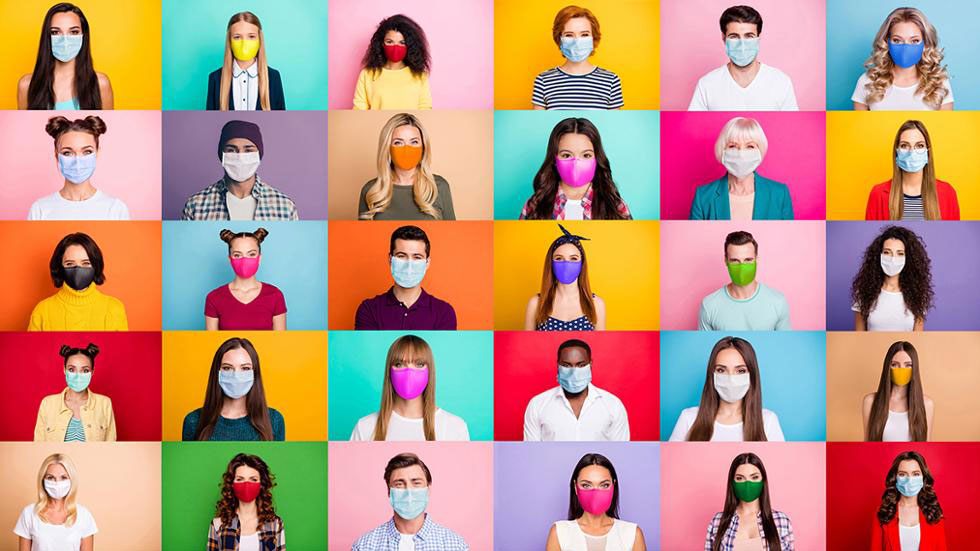
The pandemic has been best described as a “collective trauma” yet when we look at its impact on young adults, the trauma is not just in the here and now, it’s likely to be enduring, writes Claire Hyland.
In global psychology circuits the theory of ‘emerging adulthood’ is gaining considerable traction– the idea of a new life stage between adolescence and young adulthood, lasting roughly from ages 18 to 25. Some key characteristics that distinguish emerging adulthood from other life stages is that it is a self-focused age – a period of little security and structure, but one of discovery and identity exploration through work, fashion, music, education etc.
It’s probably best described as a period of in-between. A sense of being both child and adult. It’s a period of flux, of experimentation, of trial and error, a journey of failure and learnings on the path to figuring out who you are, and what value system you want to live by.
According to psychologists, it is a “particularly important stage in the life course to understand resilience because the important changes in functional capacity, educational achievement, and social roles are large and varied and have a significant influence on life course outcomes”.
In other words, emerging adults are learning how to adult, and their experiences are a precursor to more enduring life choices.
An Abrupt Contraction of Opportunity
As the most seismic of shocks to life as we know it, the pandemic has unleashed unprecedented challenges on emerging adults that stand in conflict to the way of living that is critical to their self-development. 18-25 year olds should be figuring out who they are and building resilience by building relationships with others, through socialising, learning, travelling, expanding horizons and the exploration of their identity. And if we were living in 2019 they would be – in the way other 18-25 year olds did before them.
But instead we’re in a Covid-19 world. A world of no exams (Leaving Cert), no debs, no grads, no gigs, no festivals, no clubs, no matches to attend. A world of contracted culture, of cancelled lectures and internships, of reneged contracts, of lost jobs. A world of missed milestones and uncertain futures.

Missing Milestones, Missing Friends
Missing milestones brings with it a sense of loss and grief, but for young people the everyday loss of not seeing their friends has a more detrimental impact to their everyday happiness. In Emerging From An Emergency, our 2020 edition of Youth Culture Uncovered (an annual insights’ programme, exploring what it’s like to be young), we highlighted the negative impact on the already fragile state of young people’s mental health as they battle against anxiety and depression, brought on the isolation of not seeing their friends and the uncertainty of their now and near future. The young people from all over the world who shared their personal experiences of journeying through the pandemic with us spoke of individualised experiences, but shared a common narrative – the loss of social interaction with their friends is ‘the loss’ they struggle most with.
SpunOut’s ‘How’s Your Head’ report released earlier this month, in conjunction with the Department of Children and Youth Affairs, further highlighted the mental health challenges faced by young people in Ireland – with 35% of the 2,173 15-24 year olds surveyed saying they missed their friends, with high levels of loneliness reported particularly among young women, members of the LGBTI+ community, people with disabilities or chronic health conditions, users of mental health services and people living in rented accommodation.
Youth – The Biggest Losers
And while we’re all losers to the deadly virus, young people are disproportionately affected, as their losses are not just immediate, but are likely to span decades ahead. Beyond the challenge of stunted self-development, and mental health challenges, they face a widening of the intergenerational wealth gap.
Even in BC (Before Coronavirus) life, young people (aged 15 to 24) were more likely to be unemployed or in worse quality jobs than older adults (aged 25 and above). According to the International Labour Organisation (ILO) the global youth unemployment rate in 2019 (13.6 per cent) was well above the pre-global financial crisis rate in 2007 (12.3 per cent). And let’s not forget that the IMF declared in 2018 that emerging adults’ older siblings, 28-35 years, held 60% of the wealth their parents had at their age. And that recession pales in comparison to this K-recession recession, where those who are disadvantaged heading into it will come out the other end even more worse off.
Coming into this crisis we have a cohort that are more vulnerable to economic crises and shocks. And here they are now faced with the triple whammy of (1) disruption to education and training (likely to reduce employment opportunities and earnings in the future), (2) a reduction in immediate earnings and employment as businesses collapse and job losses rise, and (3) the rising obstacles to finding work and transitioning to better jobs.
Help, Not Judgement Please
With social isolation and unemployment worries set to rise as we head into a second lockdown, we older adults have a choice. We can cast judgment on our young adults who are struggling, grieving their losses – for the lost possibilities of today and the opportunities of tomorrow – or we can work to help them.
Short-term, we can help support them to better cope with the management of their losses, and help them see, that despite the disruption and loss, there are gains to covid-living including the opportunity to radically re-shape their future for the better.
Long-term, our intervention will be needed to drive the fair distribution of national economic gains, thereby creating a more equal society where young people’s needs are adequately taken care of.
After all, not all adults are equal. Some need more help than others.
Claire Hyland is Head of The Youth Lab, the insights, strategy and planning division of THINKHOUSE agency.




















